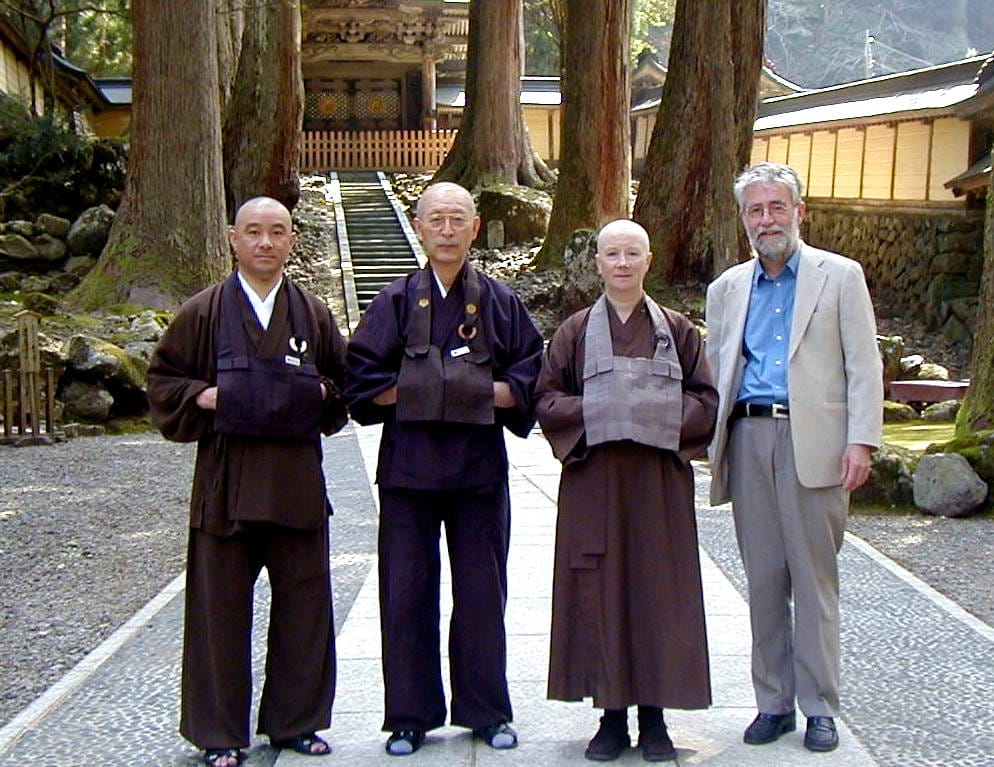About
This site offers a curated collection of Master Dogen's teachings and related scholarship, complemented by personal insights from a long-term Zen practitioner.

This site was created to bring Master Dogen's work, analysis of his work (from both Buddhists and non-Buddhists), and modern teachings related to his work together in one place. You can find:
- A brief and accessible biography
- A library with PDF translations of Dogen's work and articles
- Recommended translations and analysis in book form
- A small sampling of Dogen's poetry
- A collection of Wikipedia entries on Master Dogen, Soto Zen, and related topics
- Zen Teachings, usually Dogen related, by modern Zen Masters
- Links to other websites with Zen Master Dogen related content and teachings
- Zen basics and practice information for those completely new to the subject
- Interviews with Zen Masters and other notable Dogen experts
About Zen Master Dogen
Great Master Dogen (1200 – 1253), the Japanese founder of the Soto school of Zen, is revered by Buddhists, philosophers, and many scientists for the depth of his insights into the nature of reality. His work encompasses:
- Sublime and accessible poetry
- Practical instructions for seemingly mundane tasks
- Religious and philosophical texts that can be challenging to comprehend
Many who study Dogen's work in-depth, particularly Buddhists, find their relationship to it transforming greatly over time. Some struggle with it for decades, while for others, it never fully resonates, even if they grasp the underlying truth.
Ultimately, Dogen points forcefully to one's true self, but full appreciation of his work requires personal realization beyond intellectual understanding. This is why his teachings continue to resonate today.
"To study Dogen is to study your daily life, basically, as a koan." – Sojun Mel Weitsman
A more in-depth biography can be found here.
Dogen's Impact
Steven Heine's The Man Who Redefined Zen captures the enormity of Dogen's impact and serves as a good starting point for those new to his work:
"On a theoretical level, his masterwork, the Treasury of the True Dharma Eye (Shobogenzo), is considered one of the greatest examples of worldwide religious writings... As a philosopher, Dogen has been ranked with Aristotle and Augustine, Hegel and Heidegger, and as a poet with Walt Whitman and Gary Snyder, as well as, in the Japanese context, Kukai, Saigyo, and Basho."
About Soto Zen
Master Dogen is one of the two 13th century founders of Soto Zen. Soto emphasizes the practice of Shikantaza or "just sitting" meditation. Soto didn't migrate to the west until the 20th century, but the first generation of Japanese teachers in the west and their Dharma heirs were immensely influential:
- Shunryu Suzuki (Zen Mind, Beginner's Mind)
- Dainin Katagiri
- Taizan Maezumi
- Houn Jiyu-Kennett (who trained in Japan and became the first western female Soto Zen priest)
- John Daido Loori
- Tetsugen Bernard Glassman
- Dennis Genpo Merzel
- Charlotte Joko Beck
About the Site's Creator
Like many others, I stumbled across a copy of Zen Mind, Beginners Mind in a Half Price Books store. That event, in 1995, kicked off years of voracious reading across multiple Buddhist schools and traditions, tons of outreach to teachers and practitioners around the world, and (eventually) actual Zen practice. I wrote about much of that period on a blog at renegadebuddha.com (I no longer own the domain) and I'm in the process of archiving some of that content here. That period of intense seeking, exploration, and cautious skepticism passed many years ago but I created this site with that self in mind. If that is where you are, I hope you find this helpful. Feel free to reach out if you have questions, suggestions, or just want to chat.
I'll continue to post my personal observations from time to time in this section.
A Word of Caution
"When we read someone like Dogen, that should be a starting point. That's an excuse to ask ourselves certain questions. Among them "Is this true or not, but also if it is true where does it take me?" So when we read that quotation by Dogen, when we read that text by Dogen, it should be like walking into a space that is very very big. The danger is that we read the text, we read the quotation, and it becomes an end point vs. a starting point." – Koun Franz